Lahaina Treescape Restoration Project update: New sprouts atop banyan tree
The 150-year-old Lahaina Banyan Tree, which shades nearly a full block between Front and Wharf streets, continues to show positive signs of recovery following the Aug. 8 wildfire, according to officials with the state Department of Land and Natural Resources.
It is not the only tree receiving attention from a group of volunteer arborists and landscapers who have banded together as the Lahaina Treescape Restoration Project. The title was coined by arborist Steve Nimz who initiated care and watering for the historic Banyan tree.
Last Thursday, the hui of professionals met under the banyan to see how it was doing and to discuss plans for replanting native and endemic trees across the devastated community.
“After not being here for two weeks and looking at the new sprouts, especially on the makai side of the tree it is enlightening and exciting to see all the new growth, but also how high up in the canopy it is,” Nimz said of the banyan.

He estimates one-third of the tree is showing really strong recovery, another third only slightly so, and the final third is not showing anything yet. “In my opinion the tree is still in a coma,” Nimz said in a DLNR news release. “I relate it to people. They’re in a coma and all of a sudden they blink an eye or move a finger. This tree needs to put out enough foliage and green to be able to feed itself.”
Duane Sparkman, a project manager with the nonprofit Kīpuka Olowalu, is leading the committee of professionals. “What we’re trying to do right now is corralling the teams. There’s a lot of effort and interest coming from the entire country. We’re trying to bring everyone into one group and figure out what the Lahaina community envisions for the future of their treescape.”

The experts point to the value of trees in reducing heat loads, raising humidity, and actually preventing or slowing the movement of wildfires.
Currently beyond the watering of the banyan tree by volunteer construction companies, the “tree-covery” team is utilizing Kai McPhee’s small water truck to get moisture to numerous ulu (breadfruit trees), kukui nut, and Royal palm trees.

Around the base of a burned ulu tree behind the historic Seaman’s House and Hospital, new ulu have been planted. Sparkman said, “It’s really just trying to keep the roots established so that way we can get a viable root shoot coming out of it.”
A few blocks away on the grounds of the Waiola Church, in existence for more than 200-years, trees around the Waiola Cemetery did not burn. Ua Aloha Maji, also with Kīpuka Olowalu sprayed water from McPhee’s truck on kukui nut and Royal palms.
As a Native Hawaiian cultural practitioner, he blesses each tree or location before beginning to water. “We’d like to get everyone on board with the idea of making an endemic or indigenous forest community for Lahaina, including providing seeds, seedlings, and tree as gifts to homeowners to restore their individual treescapes.
Children at Kīpuka Olawalu are already planting seeds and they expect to have tens of thousands of milo, wiliwili, and other native trees ready for planting. “Trees that will thrive in the sunshine of Lahaina and not be water thirsty,” commented Maji.






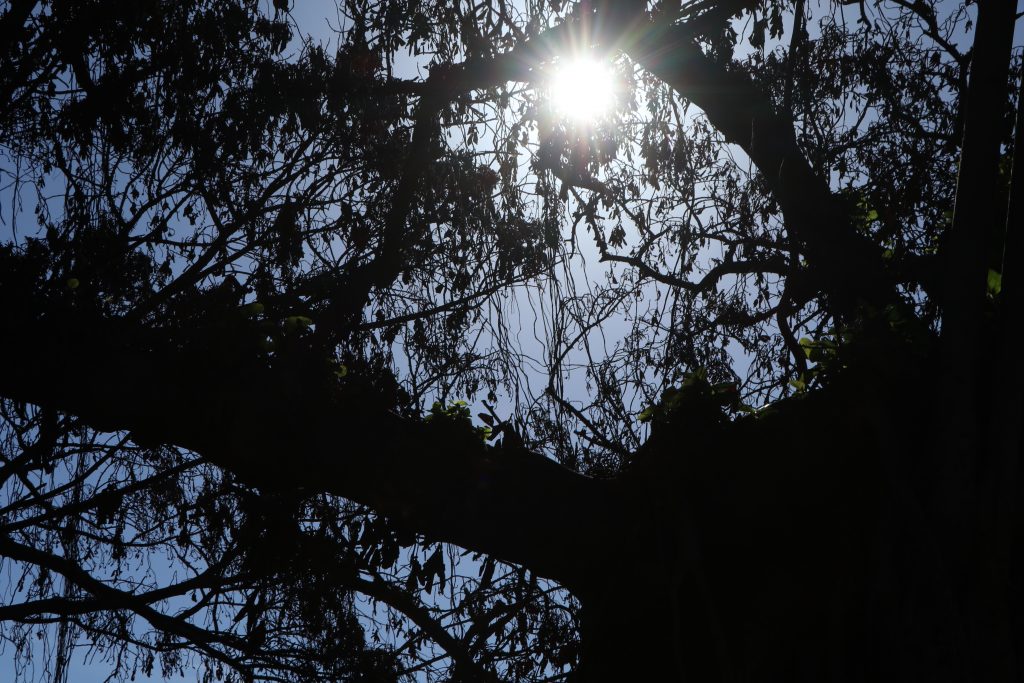
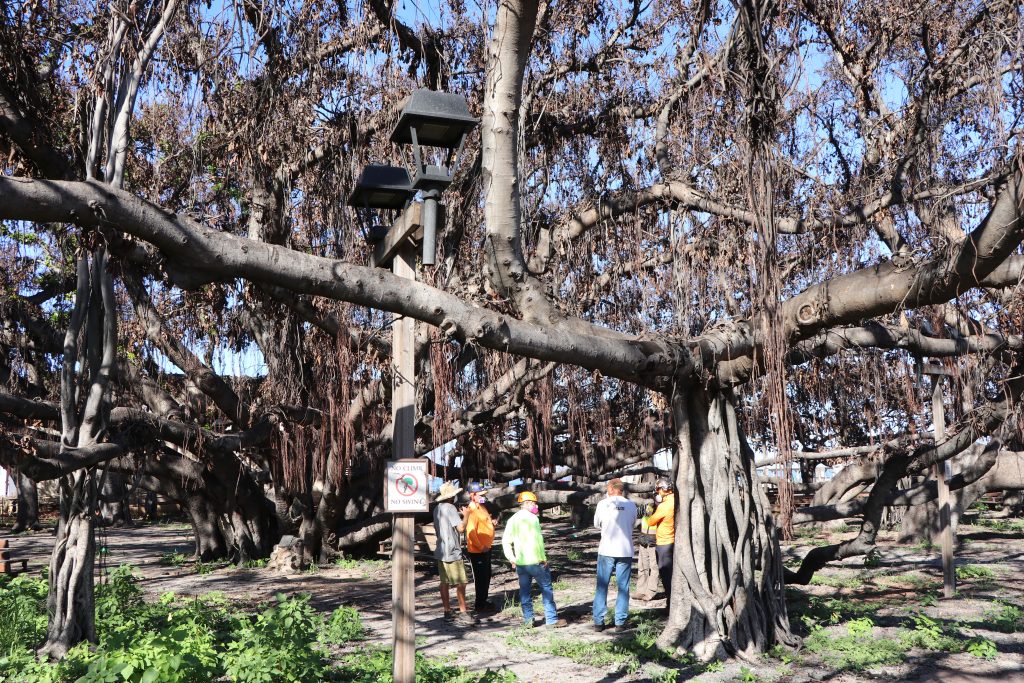
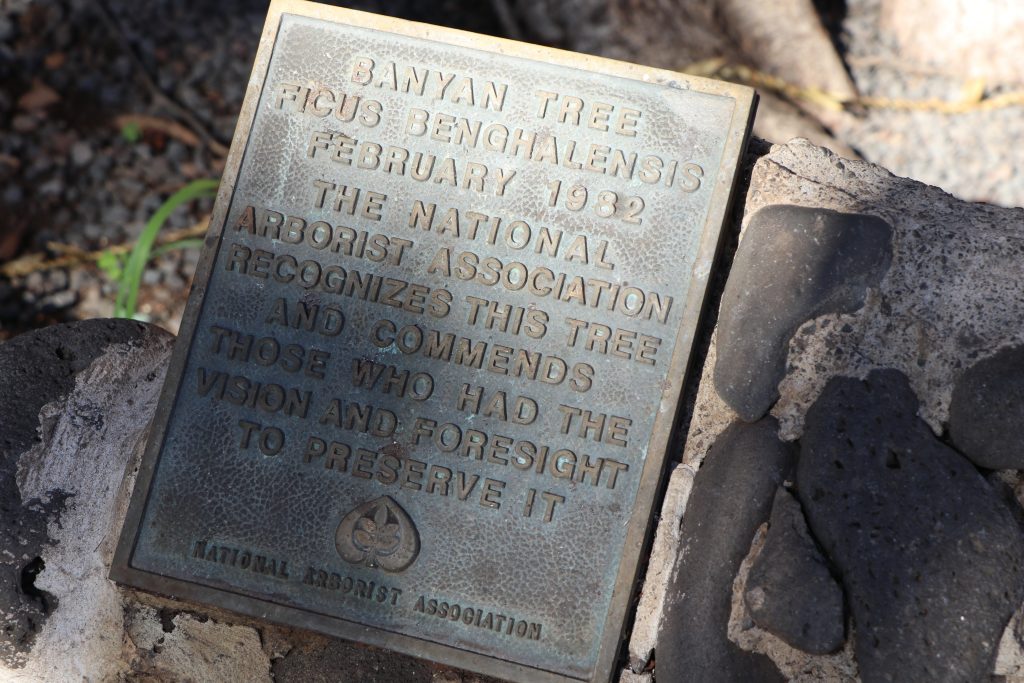







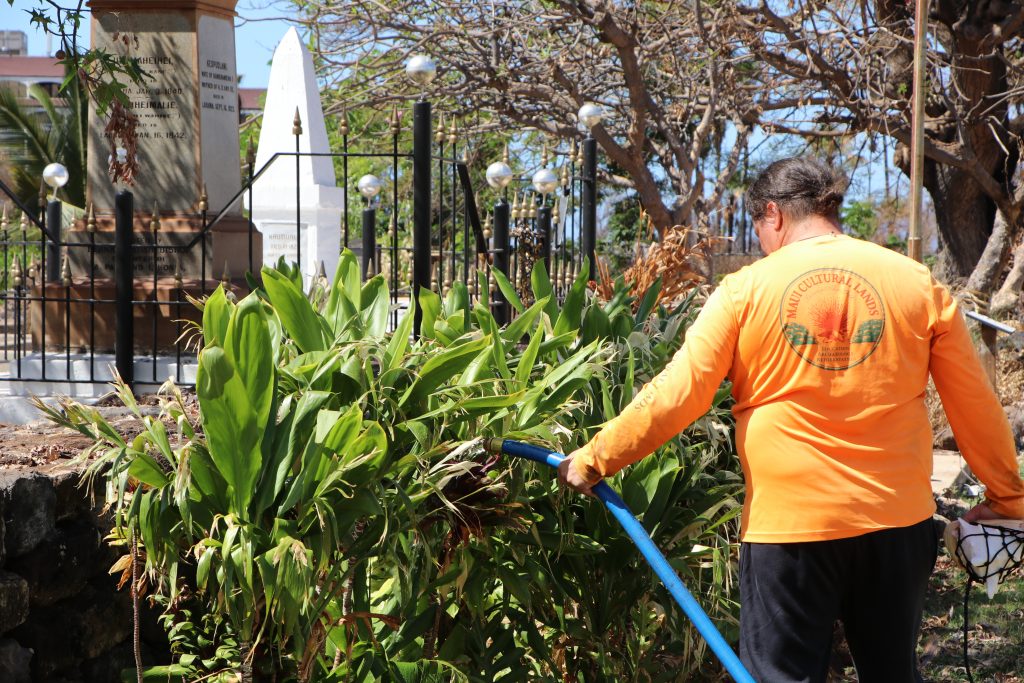
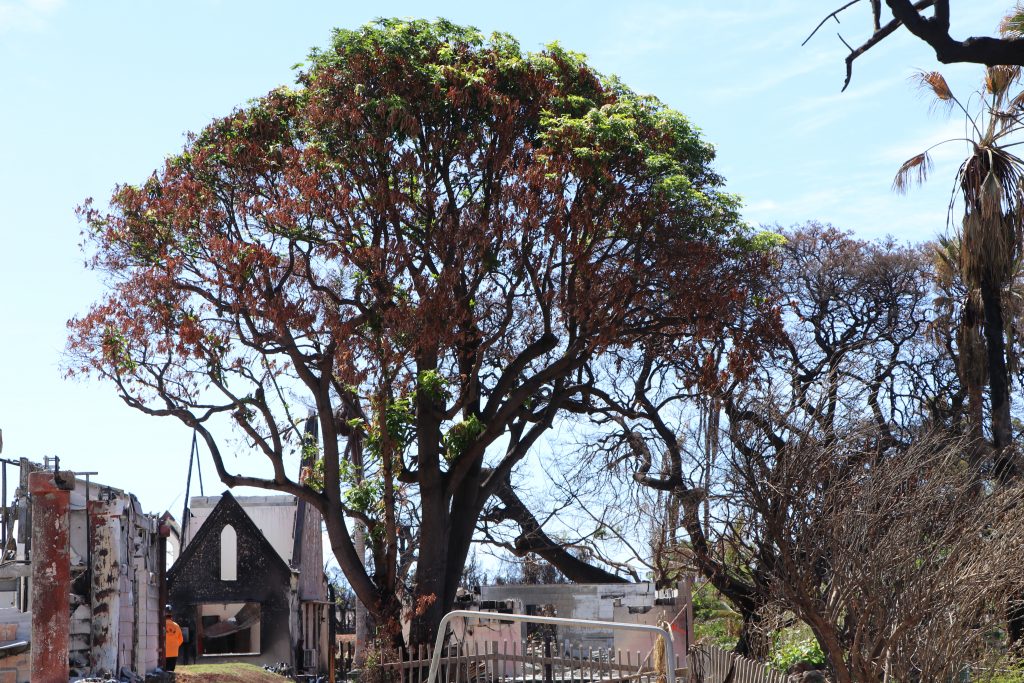
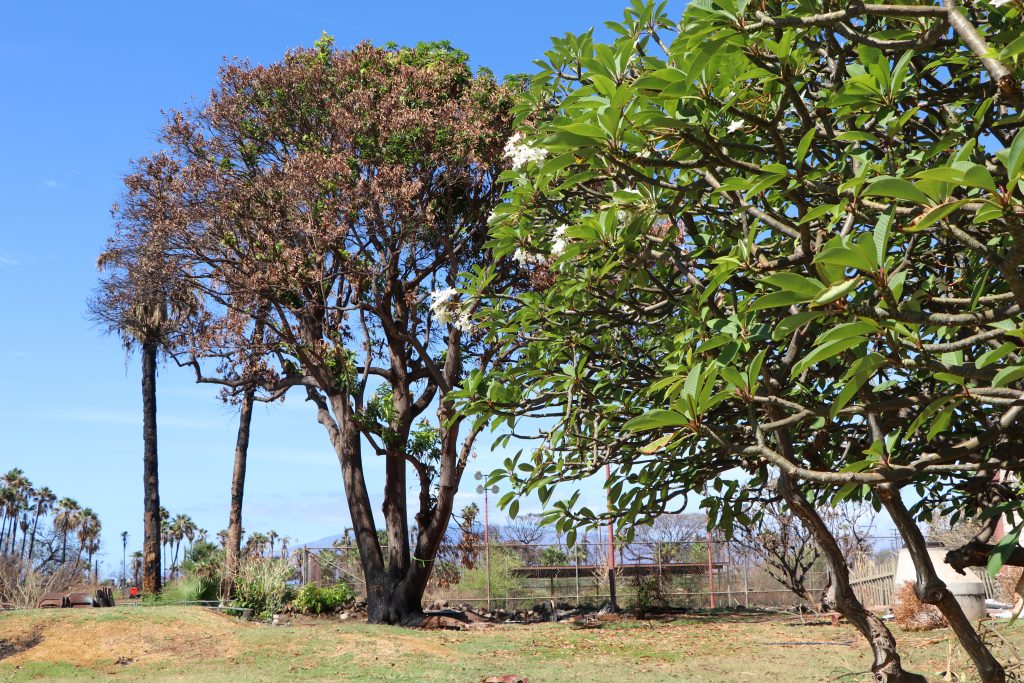







_1768613517521.webp)


